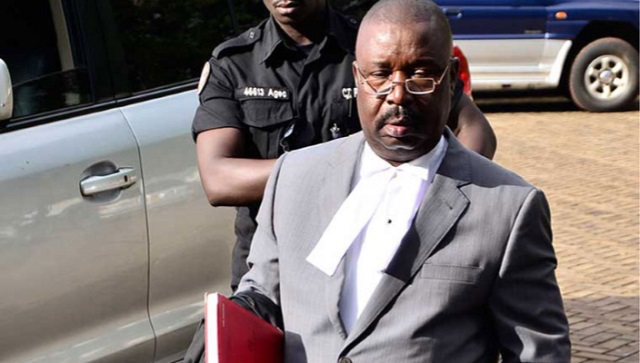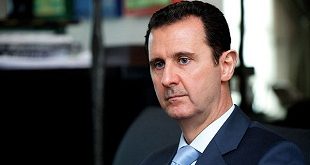
Same opposition proposals, same fate
The opposition, represented by its ally Niwagaba, is pushing its own reform proposals.
On Aug.01, Niwagaba was allowed to move his motion before parliament, meaning it now stands a chance of being allowed to be debated.
Niwagaba’s reform proposals include a demand for an independent Electoral commission recruited by the Judicial Service Commission, reinstatement of presidential term limits, abolition of army involvement in elections, limitation of expenses and the use of state resources by the incumbent.
Most of these are suggestions that have come up so many times that even the Supreme Court in the 2016 Presidential election petition; the third petition in which the election of President Yoweri Museveni was being challenged out of the five elections conducted since 1996, commented and ordered government to implement them.
“We must also note that in the past two Presidential Petitions,” the Court said, “this Court made some important observations and recommendations with regard to the need for legal reform in the area of elections generally and Presidential elections in particular. Many of these calls have remained unanswered by the Executive and the Legislature. We have looked at some of the election Observer Reports. Although the Reports point to several instances where the Observers found irregularities and malpractices, the main thrust of these Reports must be seen to be directed at the need for structural and legal reforms that would create a more conducive atmosphere that would produce genuinely free and fair elections.”
The issues that the Court noted that keep coming up are: the incumbent’s use of his position to the disadvantage of other candidates, use of state resources, unequal use of state owned media, late enactment of relevant legislation, and limited time for filing and determination of a presidential election petition, among others.
These were the most prominent proposals in a Bill drafted by opposition politicians under their umbrella coalition, the Inter-Party Cooperation (IPC), in the run up to the 2011 elections.
The same proposals featured prominently in the `Citizens Compact’ that came out of nation-wide consultations of opposition political parties, civil society organisations and religious leaders in 2014.
They now feature strongly in the latest 2019 constitutional amendment Bill by Niwagaba.
The other reforms are that if a presidential candidate garners 10% in general elections, they should be ex-official Members of Parliament, creation of a Speaker’s Panel to advise the office of the Speaker and preside over parliament in case the Speaker and Deputy Speaker are indisposed, and creation of a lean government of only 21 Cabinet Ministers and 21 State Ministers.
Previously, the government has blocked reform proposals by private entities every election cycle.
The IPC proposals drafted in 2009 were denied a slot on Parliament’s order paper when former leader of opposition OgengaLatigo attempted to introduce them.
The Citizens Compact was pushed aside by the government. Instead it introduced the Constitutional Amendment Bill of 2015 that did not in any way address the issues.
Most observers say Niwagaba’s proposed reforms are likely to suffer the same fate as those before them.
Deputy Attorney General Rukutana, for instance, has already raised an objection that the Bill has no Certificate of Financial Implication.
The certificate is a requirement under Article 93 of the Constitution and the Public Finance Management Act. That certificate is awarded by the Ministry of Finance and the ministry has previously been used as a tactic to block any Bill that government deems unfavourable.
Wandera Ogalo says Niwagaba’s proposed reforms are “real reforms” but says they will not get anywhere just like any other reforms that threaten President Museveni’s grip on power.
Niwagaba is cognisant of these limitations but he says he will do the job the people entrusted to him and leave the rest to those obliged by the law.
“For us we are doing the job that Ugandans entrusted us with,” Niwagaba said. “It is now up to the Speaker to rule on whether the motion should be debated or not. The AG was claiming that I don’t have the Certificate of Financial implication but I don’t think it is required at this stage. I only moved a motion, seeking leave to introduce the bill. If we encounter any difficulty we will invoke the provisions of the Public Financial Management Act.”
Targeting more parliament seats
Opposition stalwart, Mugisha Muntu, who is the coordinator of the newest party; the Alliance for National Transformation (ANT) says anyone expecting any meaningful reforms to be advanced by Museveni’s government is naive. He says instead Ugandans should keep organising to overwhelm the regime.
“If we (the opposition) had at least 45% of the members of Parliament, Museveni wouldn’t have done whatever he wanted with the constitution.”
Mugisha Muntu appears to be pursuing the position advanced by some experts on political reforms and what political parties need to do to win them.
Kristof Jacobs, a political scientist at Radboud University, for example, says major electoral reforms result from two main considerations by the political elite; the maximisation of seats in parliament and legitimising the electoral system.
According to Jacobs, victory in a contested election must result from a process widely regarded as free and fair for the successful assertion of democratic legitimacy of the regime. The legitimacy of the elections in Uganda is at its lowest considering that Presidential elections have been challenged thrice out of the five times they have been held under Museveni’s tenure.
As a result, voter turnout has been declining. In 2011 only 59% of the voters turned up to vote and in 2016 the figure increased only by 3%.
Muntu says the opposition has to push on two fronts by working hard to increase their presence in parliament and changing tactics to defeat the regime even on an unleveled ground.
The FDC strategy is less clear, possibly because of the many strands within the party.
While Niwagaba proposed reforms in parliament appear to be the official FDC party position, the party has a dominant fringe of its former president and three time presidential candidate, Kizza Besigye, who has dismissed any hopes of getting a free and fair election under Museveni.
Besigye appears to be of the same view presented by Jacobs in his paper titled `Patterns of electoral reform’. Jacobs argues that politicians by nature are never willing to change the rules of the game they are winning.
“Political elites rank democratic reforms according to the levels of threat or opportunity that they present to them,” Jacobs argues, “Political elites will implement the reform that benefits them the most.”
As a result of the need by the political elite to secure their interests, Jacobs says, fundamental changes to electoral systems rarely occur and arise only in “extraordinary historical situations”. In this sense, the Uganda situation and the position taken by the NRM government appear to be usual. What is unusual is the opposition expectation of something different.
****
 The Independent Uganda: You get the Truth we Pay the Price
The Independent Uganda: You get the Truth we Pay the Price


